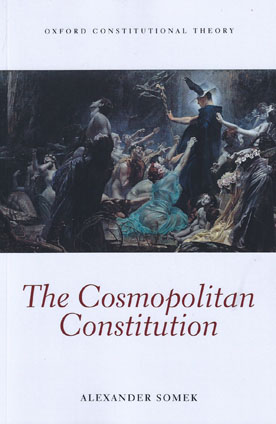
Originally the constitution was expected to express and channel popular sovereignty. It was the work of freedom, springing from and facilitating collective self-determination. After the Second World War this perspective changed: the modern constitution owes its authority not only to collective authorship, it also must commit itself credibly to human rights.
Thus people recede into the background, and the national constitution becomes embedded into one or other system of 'peer review' among nations. This is what Alexander Somek argues is the creation of the cosmopolitan constitution. Reconstructing what he considers to be the three stages in the development of constitutionalism, he argues that the cosmopolitan constitution is not a blueprint for the constitution beyond the nation state, let alone a constitution of the international community; rather, it stands for constitutional law reaching out beyond its national bounds.
This cosmopolitan constitution has two faces: the first, political, face reflects the changed circumstances of constitutional authority. It conceives itself as constrained by international human rights protection, firmly committed to combating discrimination on the grounds of nationality, and to embracing strategies for managing its interaction with other sites of authority, such as the United Nations.
The second, administrative, face of the cosmopolitan constitution reveals the demise of political authority, which has been traditionally vested in representative bodies. Political processes yield to various, and often informal, strategies of policy co-ordination so long as there are no reasons to fear that the elementary civil rights might be severely interfered with. It represents constitutional authority for an administered world.